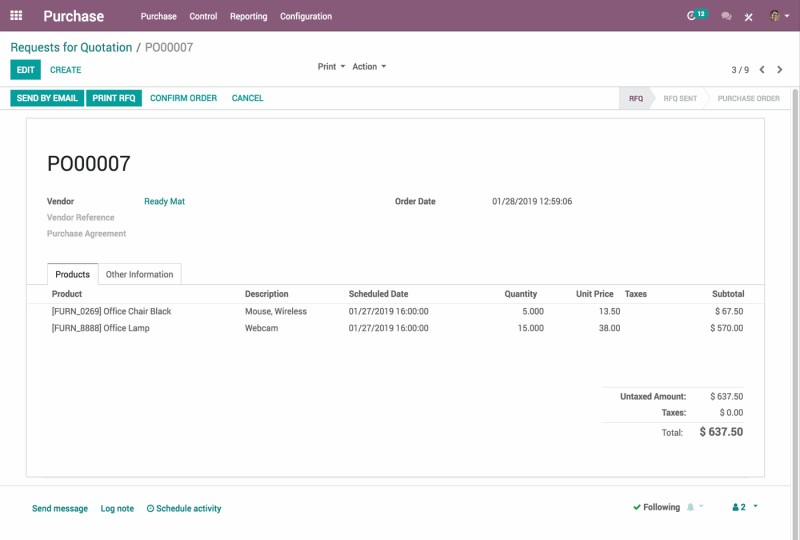
Automate the purchasing workflow
Create RfQs for your suppliers and Configure each to product to send out RFQs to each of your suppliers.
Set up procurement rules to automatically order the necessary items based on stock levels, minimum quantities per location or per supplier, sales, or other parameters.
Select different replenishment methods for each product depending on your manufacturing and delivery strategies.
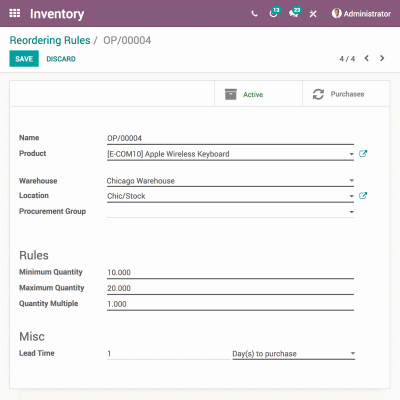
Manage supplier price lists & product availability
Make smart purchase decisions using the best prices.
Easily import suppliers’ price lists and references to make smarter purchase decisions based on promotions, quantities and special contract conditions.
Keep track of a product availability in your supplier’s stock and check your order status from within the app. You can even base your sales price on your supplier’s prices.
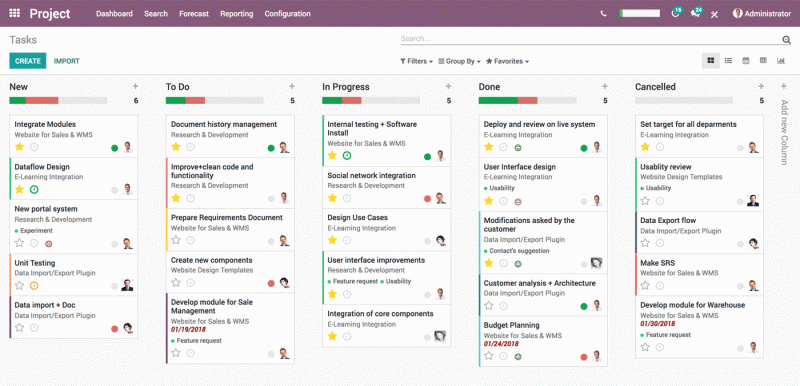
Get the best offer with purchase tenders
Get the best price by negotiating with several vendors.
Launch purchase tenders, integrate vendor’s answers in the process and compare propositions. Choose the best offer and send purchase orders easily. Use reporting to analyze the quality of your vendors afterwards.
You can also use Blanket Order Agreement to buy goods from a supplier at a negotiated price, on a recurring basis during a specific period of time.
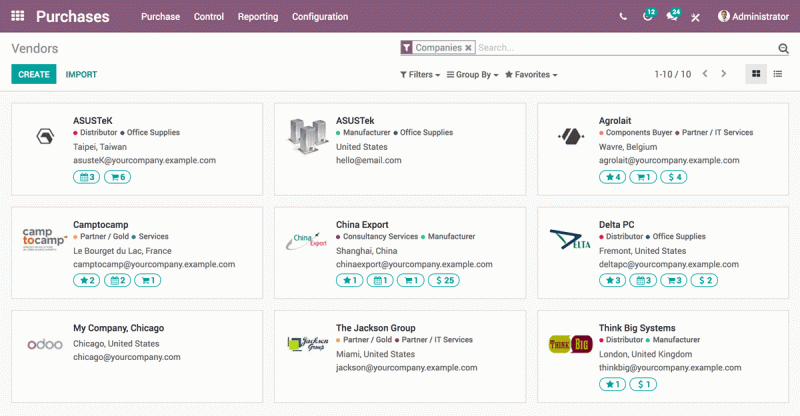
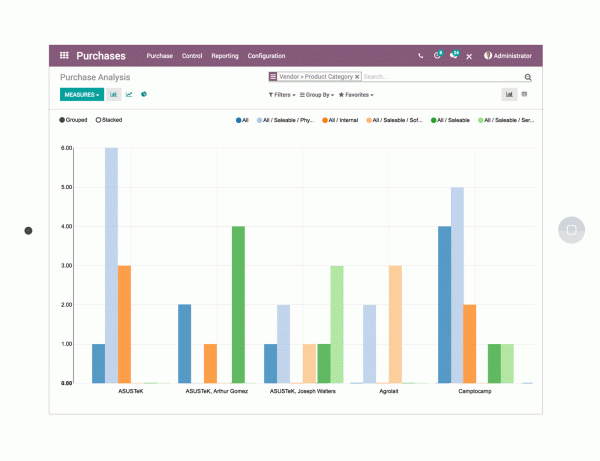
Get statistics on your purchases
Analyze, forecast and efficiently plan your orders. Get forecasts of product availability based on confirmed sales orders, purchase orders or manufacturing orders as well as internal moves.
Get accurate statistics on your suppliers’ performance through flexible reporting: delivery delays, negotiated discounts on prices, quantities purchased, etc. Integrate purchases with analytic accounting to analyze your contracts’ profitability.
Manage several companies
Save time and effort thanks to Odoo’s multi company rules.
Use a single Odoo instance to synchronize operations between different companies or warehouses. Create sales orders, share customers, suppliers and products and manage invoices for all companies at the same time. You can save even more time by automating the invoicing process between all the companies!